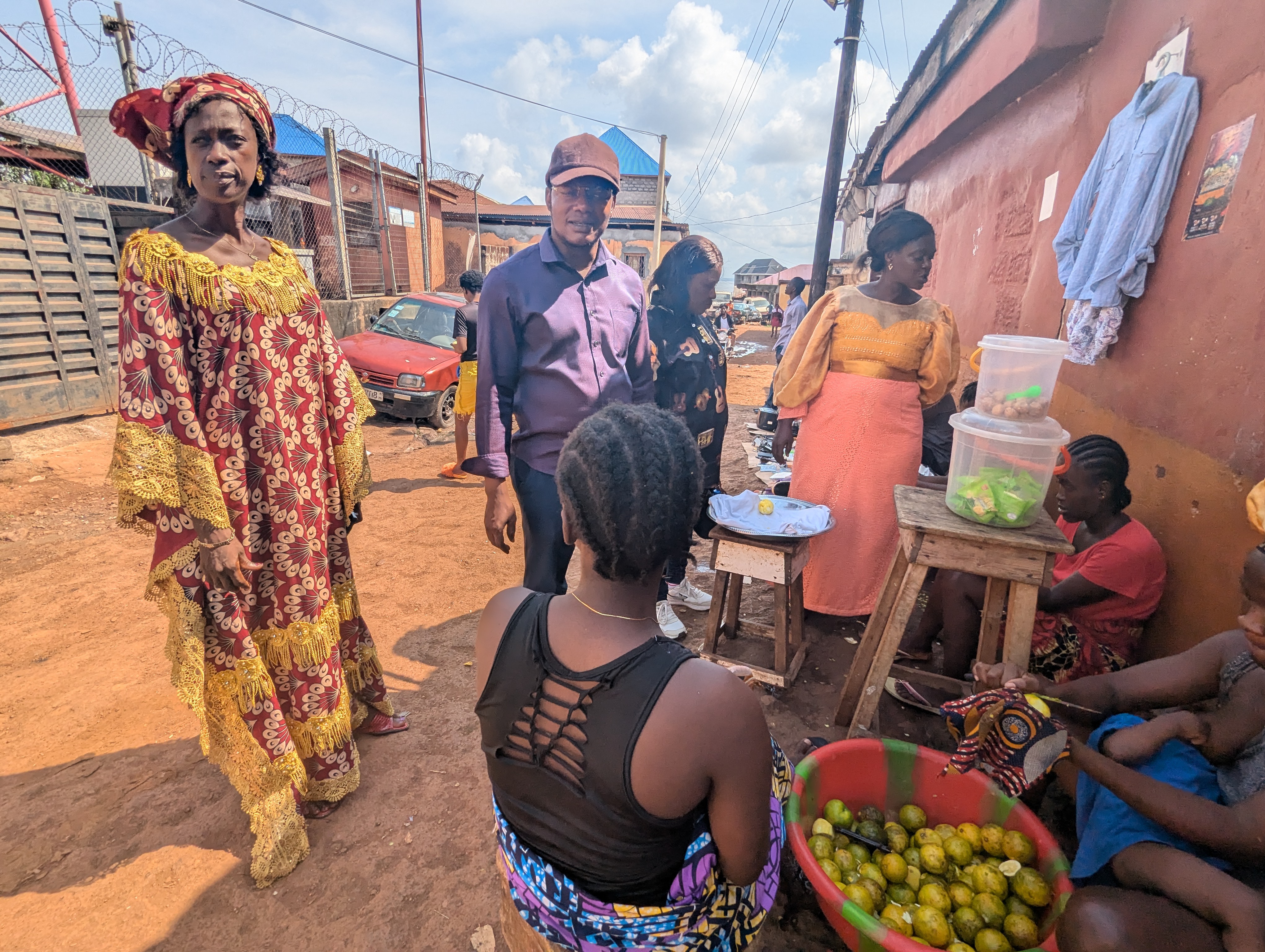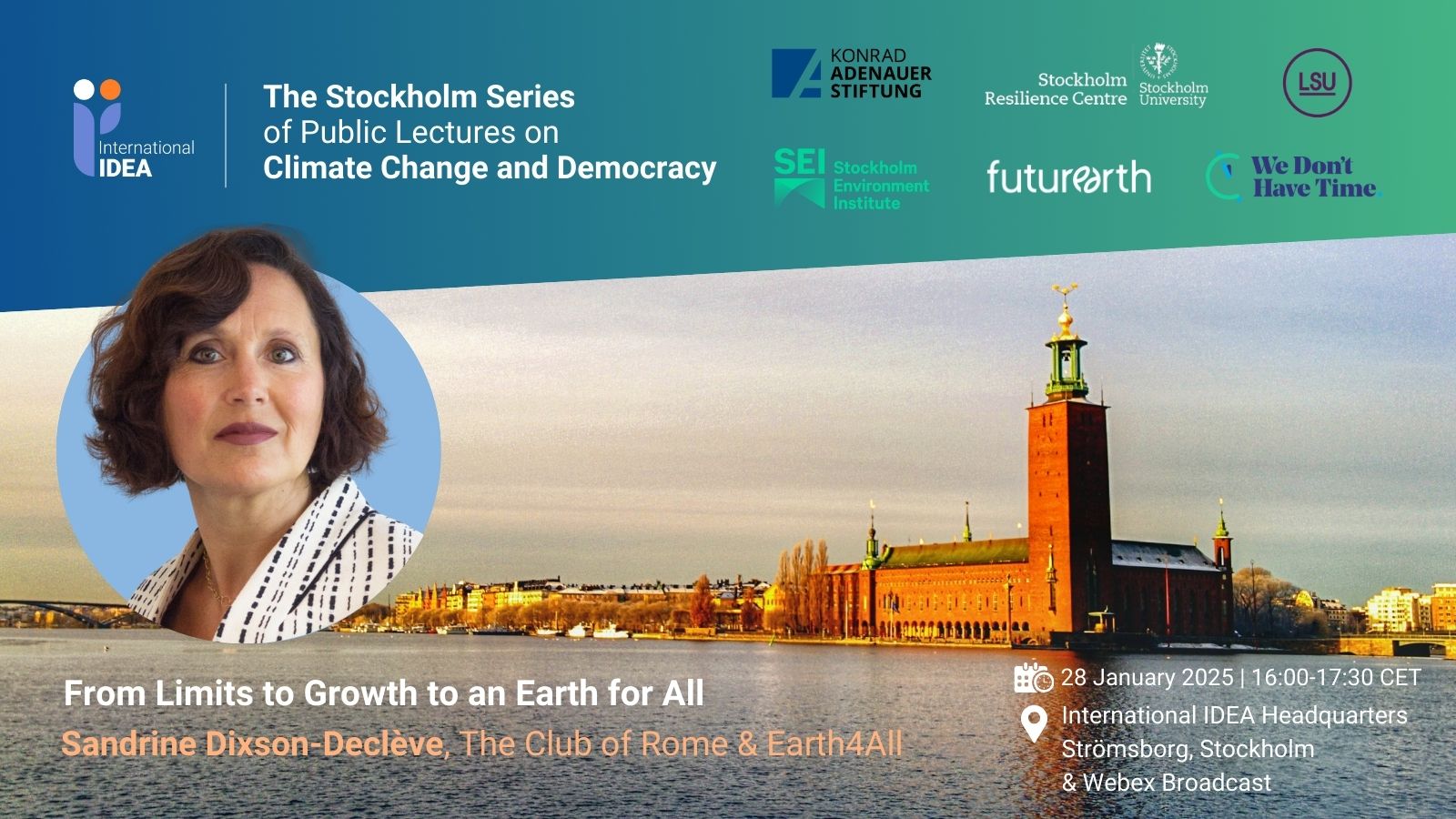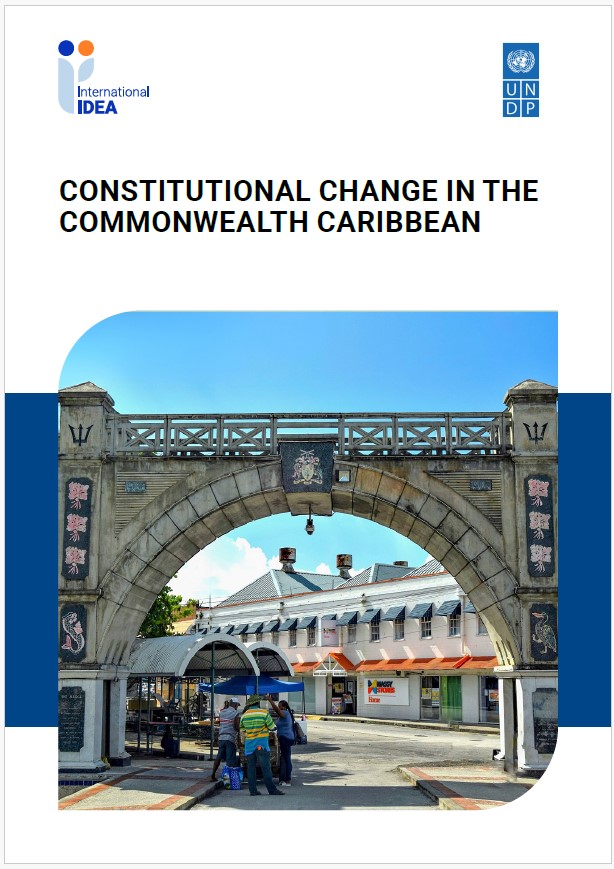IDEA Internacional sigue trabajando para fortalecer y acrecentar las capacidades institucionales de los órganos jurisdiccionales electorales en América Latina y en otras regiones del mundo. Entre los logros más recientes, IDEA Internacional es ahora miembro y colaborador de la Red Mundial de Justicia Electoral (RMJE), iniciativa de alcance mundial del Tribunal Electoral del Poder Judicial de la Federación (TEPJF).
Search
Region
Country
Type
International IDEA continues its work to strengthen the institutional capacitiy of electoral jurisdictional bodies in Latin America and beyond. As part of this effort, International IDEA is now a member and collaborator of the Global Network on Electoral Justice.
Este artículo está disponible en español.
Committed to the principles and practices of democracy, the Secretary-General as the most senior officer of International IDEA, is ultimately responsible for the leadership of the institute, ensuring the mobilization of political and financial support to expand the Institute’s impact and relevance.
Collective demands for the constitutional accommodation of territorial cleavages are pervasive across very diverse contexts.
In many countries, political identification on the basis of territory is a central basis of political mobilization, around which political claims are framed, political parties formed, elections contested, governments composed, and constitutional claims made and resisted.
International IDEA organized a two-day roundtable discussion in The Hague, on 27 and 28 November 2018, to convene participants from electoral management bodies (EMBs) and cybersecurity agencies, as well as academics and independent experts from 20 countries: Albania, Austria, Belgium, Bulgaria, Canada, Denmark, Estonia, Finland, Latvia, Lithuania, Mexico, Moldova, The Netherlands, Norway, Romania, South Africa, Sweden, Ukraine, The United Kingdom and The United States of America.
The Office of International IDEA to the European Union organized on 7 December 2018, a Roundtable discussion on ”Political empowerment of women through ICTs”, with the support of the Canadian Mission to the European Union. The aim of the event was to share experiences and views on the availability and use of ICT (Information and Communications Technology) tools to advance the political empowerment of women.
Dans le cadre de son programme d’appui au renforcement de la démocratie en Haïti, IDEA International a appuyé les partis dans leurs démarches d’institutionnalisation.
L’objectif étant que ces partis institutionnalisés, organisés, deviennent forces de propositions à travers leurs programmes politiques et constituent de véritables laboratoires de transformation sociale et sociétale.
Since the Maidan revolution of 2014, Ukraine has embarked on an ambitious decentralisation process that will see more governance responsibilities be transferred to the local level in years to come. On 13 December therefore, International IDEA presented its ‘State of Local Democracy Assessment in Ukraine’.
The Office of International IDEA to the European Union organized a Meeting of Representatives of International IDEA Member States in Brussels on 3 December 2018. The meeting was hosted by the Permanent Mission of the African Union to the European Union and the African, Caribbean and Pacific Group of States.
Luxembourg joined International IDEA as the 32nd Member State of the organization when the Council of Member States met in Stockholm on 13 December 2018. The Member States welcomed Luxembourg to the organization and looked forward to cooperating to promote sustainable democracy worldwide. Luxembourg noted in its application that the country subscribes to the mandate of International IDEA to promote and strengthen sustainable democracy at the global and national levels.
The Bali Democracy Forum (BDF) is an annual summit that brings together senior government officials and other notables from the Asia Pacific region and around the world to grapple with a theme in democracy.
Declaración: Las opiniones expresadas en este comentario son las del miembro del personal. Este comentario es independiente de intereses nacionales o políticos específicos. Las opiniones expresadas no representan necesariamente la posición institucional de International IDEA, su Consejo de Asesores o su Consejo de los Estados Miembros.
This article is available in English.
Disclaimer: Views expressed in this commentary are those of the staff member. This commentary is independent of specific national or political interests. Views expressed do not necessarily represent the institutional position of International IDEA, its Board of Advisers or its Council of Member States.
The key findings on corruption derived from the most recent update to the Global State of Democracy (GSoD) Indices data are as follows.
“Government and civil society have a role to play to ensure that democratic reforms are well-implemented”, said U. Ganbold, Head of the Public Administration Department, Governor’s Office in Ulaanbaatar City at the Public Forum on Strengthening Public Service Accountability through Citizen Participation held on 6 December 2018 at the Khangarid Palace, Ulaanbaatar City.
International IDEA’s Annual Review of Constitution-Building Processes provides a retrospective account of constitutional transitions around the world, the issues that drive them, and their implications for national and international politics.
Democracy involves popular control over decision-making, and political equality among those exercising that control. In parliamentary democracies, day-to-day control is delegated to elected politicians, who organize themselves in political parties. Globally, political parties have become an important interface between government and the people.
This year, the ACE Electoral Knowledge Network celebrates 20 years as the world’s largest online source of electoral knowledge.
For democracies to function properly and meet the needs of citizens, they need to be adequately resourced. It is therefore unavoidable to talk about money when discussing the conduct of elections, running a government, drafting laws and running public services.
Much has passed since the start of the third wave of democracy in Latin America 40 years ago. The number of electoral democracies in the region has increased substantially and now, more people than ever choose their leaders democratically through free and fair elections and live in societies where freedom of speech and association are not only respected but also encouraged. In Central America, civil war has ended and conflict is now processed peacefully.


